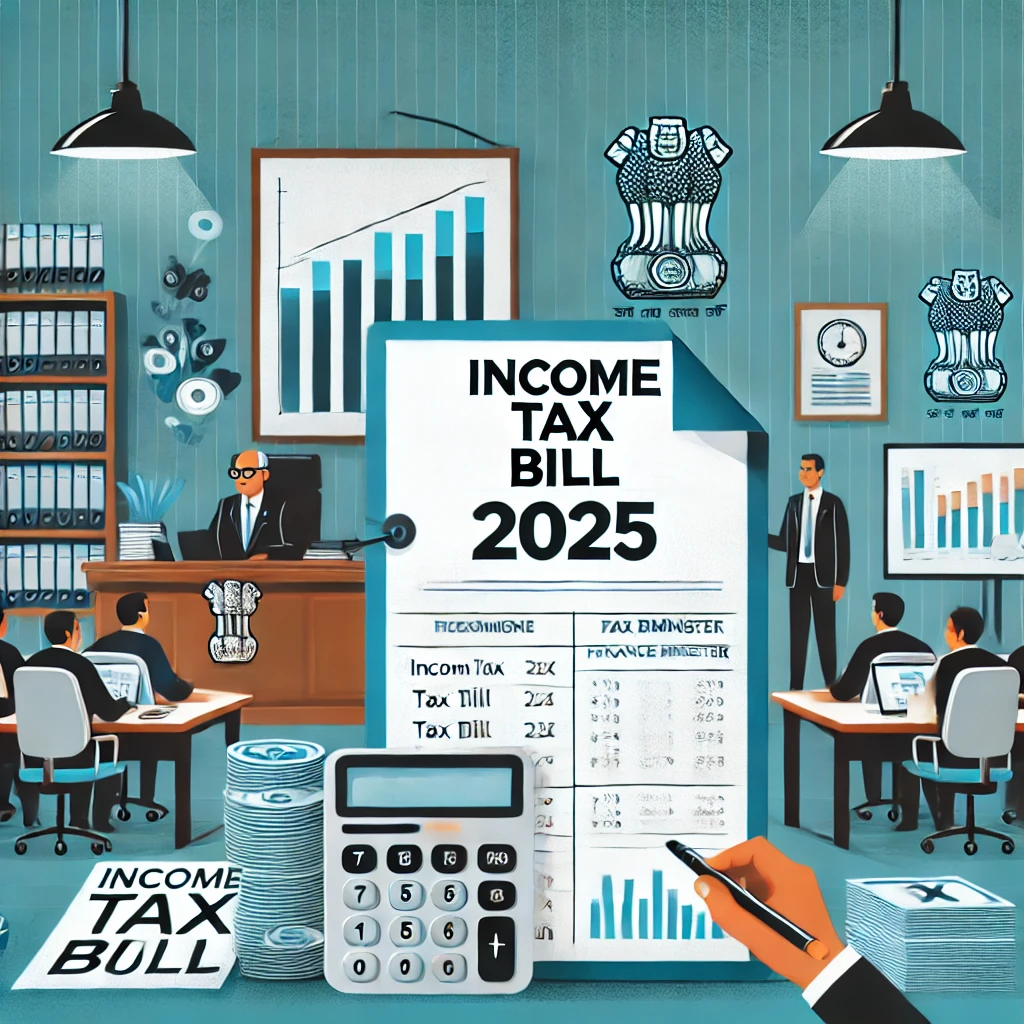The Income Tax Bill, 2025: A Major Overhaul of India's Tax Laws
An overview of the key changes in India's new Income Tax Bill, 2025, including simplified tax laws, the introduction of a 'Tax Year,' and more.
Post last updated: February 13, 2025

The Income Tax Bill, 2025: A Major Overhaul of India's Tax Laws
On February 13, 2025, Finance Minister Nirmala Sitharaman introduced the much-awaited Income Tax Bill, 2025, aimed at replacing India's decades-old tax framework. This bill seeks to simplify tax laws, enhance compliance, and reduce legal disputes, making taxation more transparent and accessible for individuals and businesses.
Key Changes in the Income Tax Bill, 2025
The new bill introduces several changes designed to modernize India's tax structure:
1. Easier and Simpler Tax Laws
The bill significantly reduces the complexity of existing tax laws, cutting down the tax code from over 800 pages to 622 pages. By removing redundant provisions and using more straightforward language, it aims to make compliance easier and reduce legal confusion.
2. Financial Year & Assessment Year Replaced by 'Tax Year'
A key change in the bill is the introduction of a 'Tax Year', eliminating the long-standing practice of separate financial and assessment years. This shift is expected to streamline tax filings and improve clarity for taxpayers.
3. Expanded Access to Digital Records for Tax Authorities
Tax officials will now have greater access to digital records, including emails, social media, and online banking transactions, during investigations. While this may enhance tax enforcement, concerns have been raised about privacy and the potential for misuse.
4. Decriminalization of Minor Tax Offenses
In an effort to create a more taxpayer-friendly environment, the bill removes criminal penalties for certain minor infractions. This ensures that unintentional mistakes do not lead to excessive legal trouble.
5. Feedback-Driven Policy Making
The bill was drafted after considering over 6,500 suggestions from tax experts, industry professionals, and the general public. This consultative approach ensures that the new provisions align with real-world tax challenges.
Key Differences Between the Previous Tax Law and the New Income Tax Bill
| Feature | Previous Income Tax Act | Income Tax Bill, 2025 |
|---|---|---|
| Law Complexity | Over 800 pages, difficult to understand | 622 pages, simpler and clearer |
| Tax Filing Periods | Financial Year & Assessment Year | Single 'Tax Year' system |
| Access to Records | Limited access to digital data | Expanded access to emails, social media, and banking records |
| Penalties for Minor Infractions | Criminal charges possible | Minor offenses decriminalized |
| Stakeholder Input | Minimal engagement with experts | Over 6,500 public suggestions considered |
When Will These Changes Take Effect?
The bill is currently under review by a parliamentary standing committee. If approved, the new tax provisions will come into effect from April 1, 2026, aligning with the 2026-27 fiscal year.
Frequently Asked Questions (FAQ)
Q1: What is the biggest benefit of this tax bill?
The main benefit is the simplification of tax laws, making it easier for individuals and businesses to understand their tax obligations.
Q2: How does the new 'Tax Year' help taxpayers?
By replacing the financial year and assessment year with a single Tax Year, the system becomes more straightforward and less confusing.
Q3: Will the expanded authority access affect my privacy?
While officials will have more access to digital records, the government has promised strict safeguards to prevent misuse.
Q4: When will these new rules be enforced?
If passed, the new tax system will take effect from April 1, 2026.
Q5: Will this make tax filing easier?
Yes, the bill simplifies tax regulations, making compliance more user-friendly for individuals and businesses alike.
The Income Tax Bill, 2025, represents a significant step toward modernizing India's taxation system. While there are concerns about digital privacy, the overall goal is to make tax laws more transparent and efficient.
Have questions or need support? Feel free to reach out to us!
Email: admin@fincalci.com
Author:





